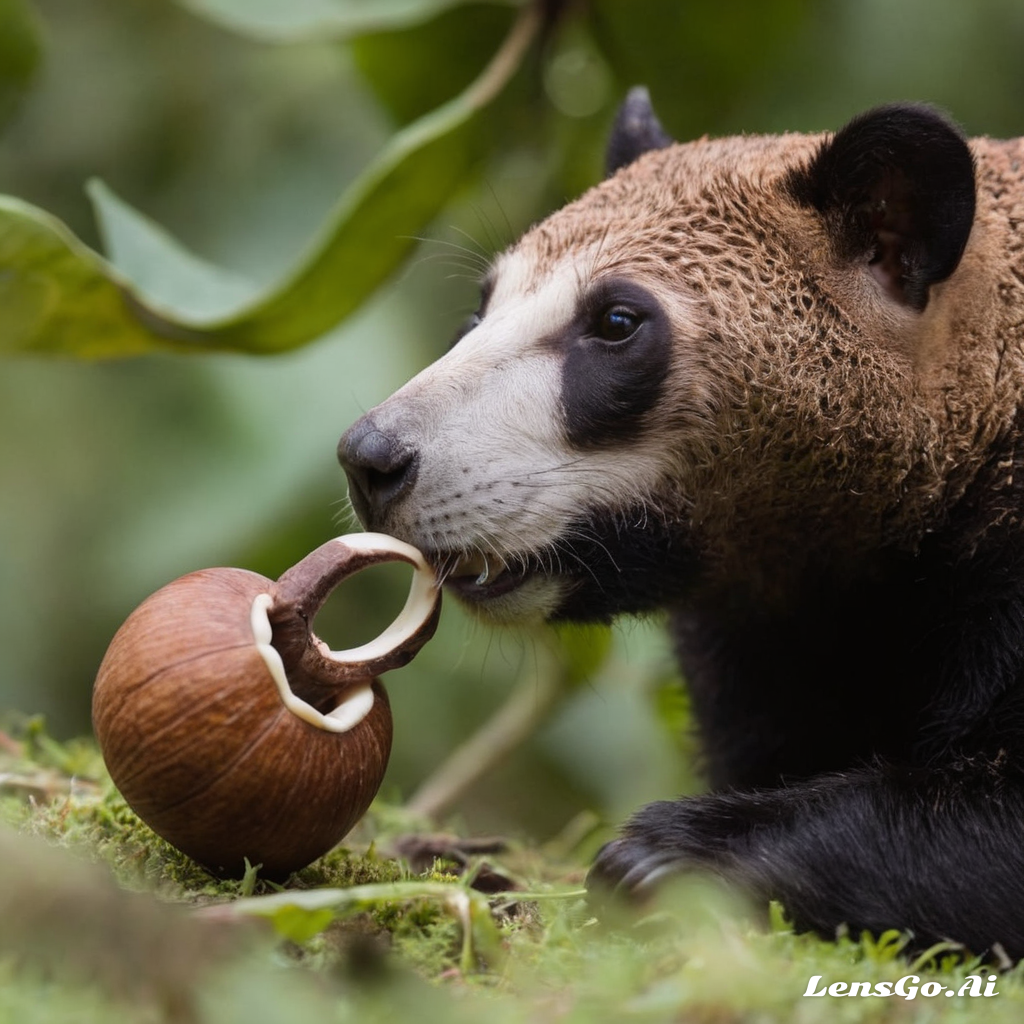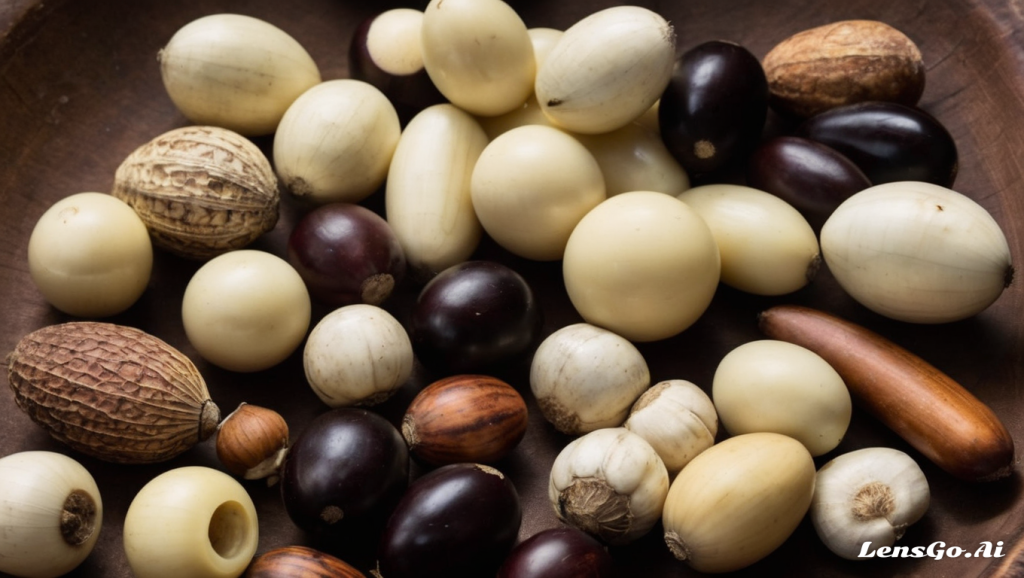Origins of the Tagua Nut
The Tagua nut, scientifically known as Phytelephas aequatorialis, is native to the tropical rainforests of South America, predominantly found in countries such as Ecuador, Colombia, and Peru. The Tagua palm tree, also called the Ivory Nut Palm, produces clusters of these nuts, which are enclosed in a hard outer shell.
Resemblance to Animal Ivory
The Tagua nut gained its nickname, “vegetable ivory,” due to its striking resemblance to animal ivory. When the outer shell is removed, the nut reveals a smooth, white surface that closely resembles the color and texture of ivory. This unique characteristic has made Tagua nut a sought-after alternative to ivory, serving as a sustainable and ethical substitute.

Properties of Tagua Nut
Apart from its ivory-like appearance, Tagua nut possesses several other remarkable properties. It is incredibly hard, comparable to the hardness of animal ivory, and has a high density that allows it to be finely carved and polished. Additionally, it is lightweight, making it suitable for various applications.
Traditional Uses
For centuries, indigenous communities in South America have recognized the value and versatility of the Tagua nut. It has been used in the creation of intricate carvings, jewelry, buttons, and even musical instruments. The nut’s natural color variations, ranging from creamy white to shades of brown, have also made it a popular material for artisans.
Contemporary Uses
In recent years, the Tagua nut has gained recognition on a global scale. It is now widely used in the fashion industry, particularly in the production of eco-friendly accessories such as earrings, necklaces, and bracelets. Its smooth texture and natural patterns make it an appealing choice for designers and consumers seeking sustainable alternatives.
Environmental Sustainability
One of the most significant advantages of using Tagua nut is its positive impact on the environment. Harvesting the nuts does not harm the Tagua palm tree, as they naturally fall to the ground when ripe. This sustainable harvesting method ensures the survival of the palm tree and does not contribute to deforestation. Moreover, the Tagua nut industry provides income opportunities for local communities, encouraging the preservation of rainforests.
Economic Significance
The production and trade of Tagua nuts have become vital to the economies of South American countries. In Ecuador, for example, it is estimated that over 50,000 people are involved in the industry. The demand for Tagua nut products has led to the establishment of cooperatives and fair trade practices, aiming to support the livelihoods of artisans and promote sustainable development.
Tagua Nut and Wildlife Conservation
The use of Tagua nut as a substitute for animal ivory has a significant positive impact on wildlife conservation efforts. By choosing vegetable ivory over real ivory, consumers contribute to the reduction of illegal poaching and the protection of endangered species such as elephants and walruses. This ethical choice helps preserve biodiversity and supports conservation initiatives.

Tagua Nut in International Trade
The popularity of Tagua nut has reached global markets, with many countries importing and exporting products made from this sustainable material. Tagua nut jewelry and accessories are highly sought after due to their unique and eco-friendly nature. The international recognition of Tagua nut contributes to the growth of the industry and the preservation of traditional craftsmanship.
Challenges and Future Perspectives
While the Tagua nut industry presents numerous benefits, it is not without its challenges. Factors such as inconsistent quality, limited access to international markets, and the rise of synthetic alternatives pose obstacles to its growth. However, with increased awareness of sustainability and ethical consumption, the future of Tagua nut looks promising, with potential for further innovation and market expansion.
Conclusion
The Tagua nut, known as the vegetable ivory of South America, is a remarkable natural resource with immense potential. Its resemblance to animal ivory, sustainable harvesting methods, and versatile applications make it an attractive alternative for both artisans and consumers. By choosing Tagua nut products, we can support wildlife conservation, empower local communities, and contribute to a more sustainable and ethical world.

